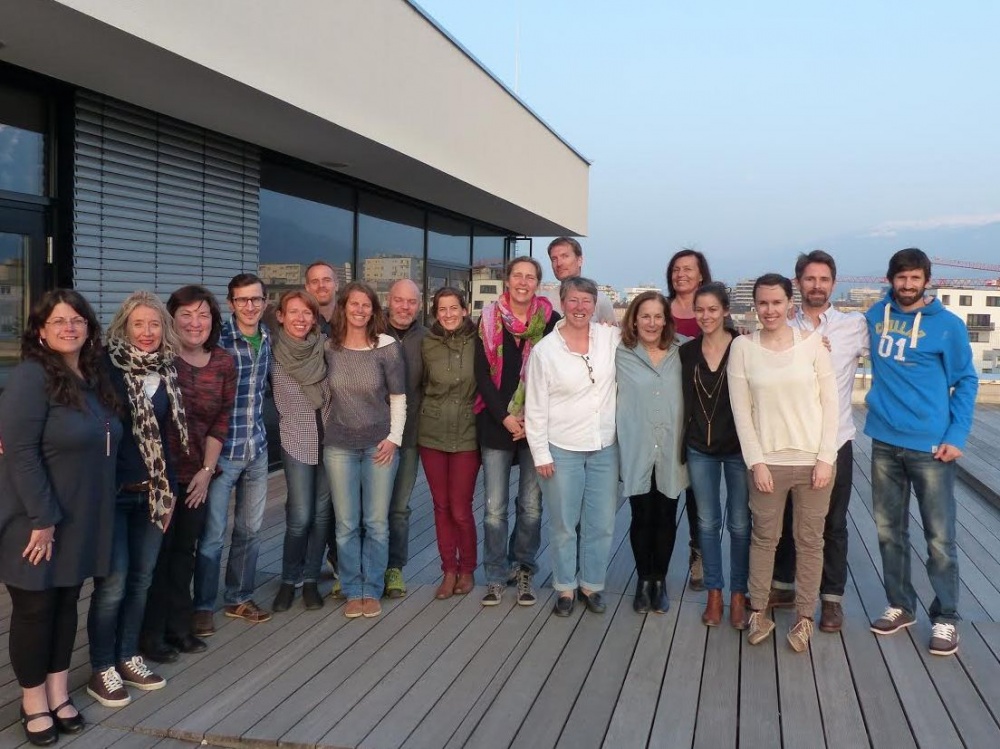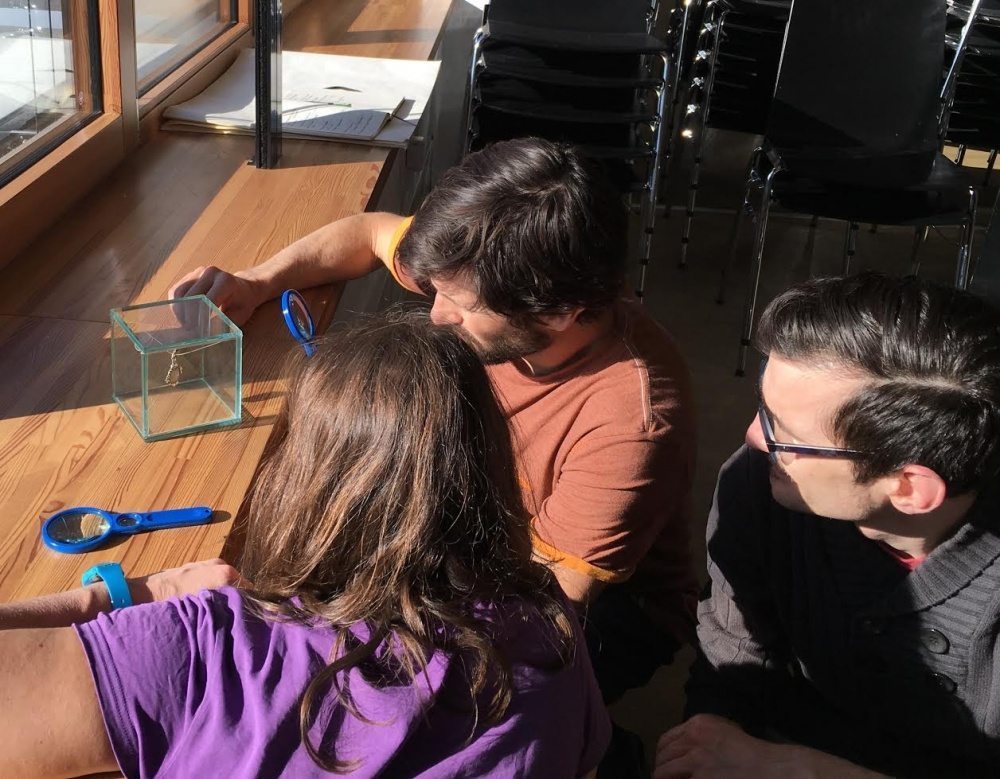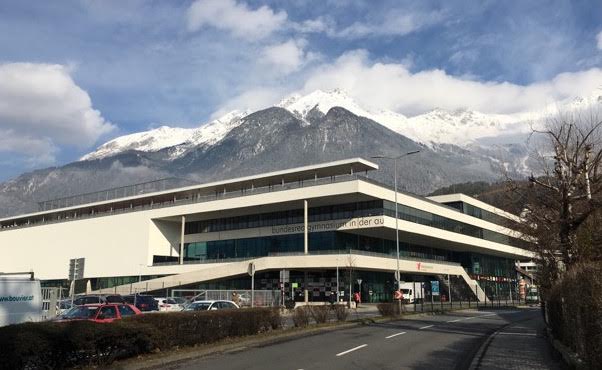The Memorial Library recently held its first bi-national seminar for educators from the United States and Austria, giving them the opportunity to explore together both the powerful lessons of the Holocaust and the educational challenges they face when teaching the Holocaust in their classrooms. The exchange took place in Innsbruck, Austria from March 16-21, 2016.
The five Americans who attended the Austrian pilot program, all members of the Library’s Holocaust Educators Network, include Cara Crandall, an English teacher from Glenbrook Middle School, Longmeadow, Massachusetts; Paula J. Mercier, assistant principal of Kearsarge Regional Middle School in North Sutton, New Hampshire; John Farris, social studies teacher at the University Liggett School, in Grosse Pointe, Michigan; Judy LaPietra, an educator at UNC Charlotte and St. Mark Catholic School in Huntersville, North Carolina; and Jeffrey Parker, English teacher at the Geneva High School in Geneva, New York.
The seminar, entitled Transnational Experiences and Reflections on Historical-Political Education/Holocaust Education in the Classroom, was the collaboration of the Memorial Library and the Bundesrealgymnasium in der Au, a combined public middle school and high school that hosted the program. Both the Future Fund of the Republic of Austria and the Pädagogischen Hochschule Tirol provided additional funding.
Memorial Library faculty Dr. Sondra Perl and Michael Franke developed the curriculum. The seminar’s goal was to create a forum for participants to explore the differences in the way Americans and Austrians talk about the history of National Socialism and the Holocaust. But teachers also had the chance to exchange approaches and methodologies gleaned from their own classroom experiences, and to discuss the broader issues of historical-political and Holocaust education they face in their respective countries.
Using the Library’s writing and inquiry-based approach to the study of the Holocaust and social justice, participants spent six days exploring the unique historical narratives of Austria and the United States, paying particular attention to what is remembered and commemorated on both the national and individual levels. They also brought those lessons into the present, closely examining issues of social justice, xenophobia, and exclusion to find parallels in today’s world. Finally, they collaborated in small groups, developing new educational units to address these issues with their students and school communities.
“There was a wonderful intimacy from the start,” says Michael. For example, for the seminar’s opening event, teachers had to bring in pictures that reflected either their personal or communal connections with the Holocaust. The resulting discussions were often deeply personal, in cases touching on family experiences, and gave participants the opportunity to explore the way national agendas can influence individual and family heritage.
Guest speakers included a representative from the memorial site at Hartheim Castle, a former euthanasia killing center. In addition, a professor from the Esslingen University of Applied Sciences offered a workshop on the use of biographies in classrooms as the entrée to a discussion about history, representation, and empathy. To set the topics explored during the seminar within the context of authentic places, participants also traveled offsite to the former Dachau concentration camp and the Jewish Museum in Munich in a meaningful culmination to the seminar program.
“Feedback from all the participants was overwhelmingly positive,” says Michael. “This was a unique opportunity for educators from different backgrounds to explore one another’s perspective while grappling with a topic that is difficult and painful for everyone.”
HEN Founder and Director Sondra Perl found the seminar particularly enriching. Perl began working with Austrian teachers 20 years ago. To be invited to return to explore the legacy of the Holocaust in the 21st century is both a culmination of that work and a new beginning.
“When I first traveled to Austria two decades ago,” Sondra reflected, “I couldn’t have imagined that my work would lead to the creation of a program that now brings our inquiry to a new generation of teachers. I am grateful to the Memorial Library for initiating this program and am eager to see what our teachers on both sides of the Atlantic create as they continue to explore the issues we studied together. This is a rich model for ongoing professional development and I am excited about the prospects for the future.”



